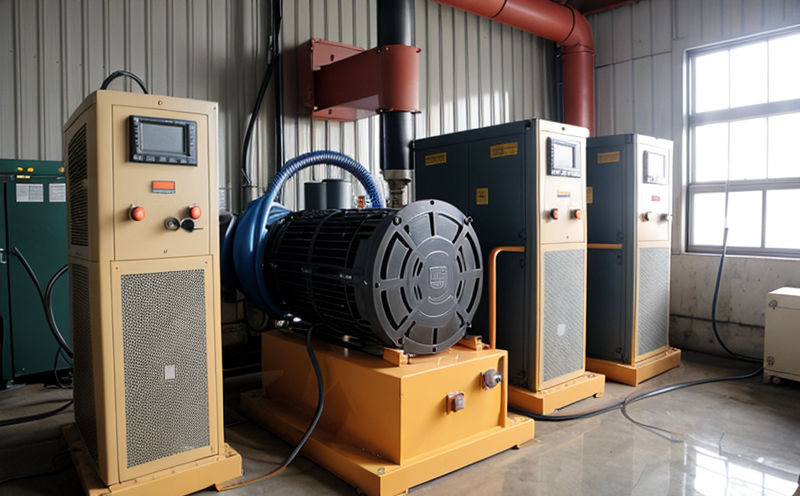ISO 9001 Quality Management Certification Testing of Equipment
The ISO 9001 standard is an internationally recognized framework designed to ensure that organizations provide products and services that consistently meet customer requirements and expectations. In the context of power generation equipment, achieving ISO 9001 certification signifies a robust quality management system (QMS) capable of delivering reliable, safe, and efficient equipment.
Our testing service specializes in verifying compliance with ISO 9001 standards for all stages of the product lifecycle, from design and development to production and delivery. This includes validating that processes are documented, controlled, and continuously improved, ensuring that every component meets stringent quality criteria. Our team of experts ensures that equipment not only adheres to industry-specific requirements but also aligns with broader international standards like ISO 15848-2 for turbine and generator safety.
Our testing facilities are equipped with state-of-the-art instrumentation designed specifically for the precision required in power generation equipment. We employ advanced metrology tools, including laser scanning devices and ultrasonic flaw detection systems, to inspect every aspect of the equipment. For example, when testing turbines or generators, we use specialized software to analyze acoustic emissions and vibrations, which are critical indicators of potential failure points.
The process begins with a thorough review of the manufacturer's quality management documentation. Our team ensures that all procedural documents align with ISO 9001 requirements before proceeding with physical inspections. We then conduct extensive non-destructive testing (NDT) and destructive testing where necessary to evaluate material integrity, component strength, and overall performance under simulated real-world conditions.
Our compliance officers work closely with R&D engineers throughout the process, providing feedback on how to improve processes while maintaining strict adherence to ISO 9001. This collaborative approach ensures that any adjustments made during testing are aligned not only with current standards but also future expectations of quality and reliability. The result is a comprehensive report detailing every aspect of our findings, complete with recommendations for continuous improvement.
By choosing our service, you gain access to a highly experienced team dedicated to ensuring your equipment meets the highest levels of quality assurance. We pride ourselves on delivering accurate reports that support successful ISO 9001 certification applications. With years of experience in this field, we understand the nuances involved and can help streamline the process for your organization.
- Comprehensive review of quality management documentation
- Advanced metrology tools for precision inspection
- Non-destructive testing (NDT) methods tailored to specific equipment types
- Destructive testing when required, ensuring no stone is left unturned
Applied Standards
The ISO 9001 standard is applied across all aspects of our quality management certification testing process. It ensures that every step from initial concept through final inspection adheres to best practices in quality control and improvement. Our services are designed to align with specific international standards relevant to power generation equipment:
- ISO 15848-2: This standard covers the safety of machinery, particularly focusing on turbine and generator systems. It specifies requirements for design, manufacture, installation, commissioning, operation, maintenance, and decommissioning.
- IEC 60034-7: This standard provides guidelines for the calculation of losses in rotating machines, which is crucial for optimizing efficiency and reducing energy consumption.
We also ensure compliance with other relevant standards such as EN 50291 for protection relays used in power systems. Our rigorous application of these standards guarantees that every piece of equipment tested meets the highest international quality assurance benchmarks.





